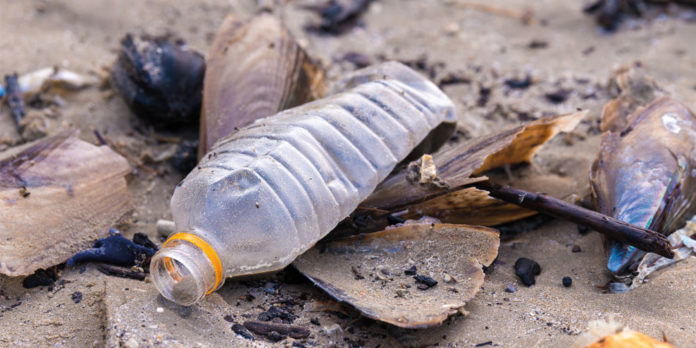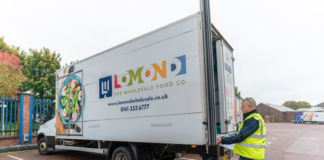David Burrows investigates what a plastic bottle deposit return scheme could mean for wholesalers.
Deposit return schemes (DRS) are back on the political agenda. “Our throwaway society has given us a tide of litter on our beaches, dead seabirds and fish, and plastic in our food,” explained Mary Creagh MP last month, as she launched the Environmental Audit Committee’s (EAC) new inquiry into disposable drinks packaging. “[We] will be taking a serious look at solutions like the use of different materials, behaviour change, better recycling and bottle DRS.”
The focus on plastic bottles makes sense: 35m of them are sold in Britain every day, yet fewer than half are recycled. But is a DRS the best bet to try and tackle this problem?
The schemes are a feature of recycling infrastructure in a number of European countries, and the concept is a simple one: consumers pay a small deposit when they purchase a product, which is refunded when the empty container is returned to a collection point. The result? Recycling goes up and litter goes down.
However, wholesalers have been sceptical of the concept as well as some of the claims. “Until we have an absolute idea [of what the scheme might look like] we’re going to be concerned,” says Margaret Smith, of the Scottish Wholesale Association (SWA). “It’s yet to be designed and yet to be costed,” she adds.
The SWA’s stance hasn’t changed since it submitted evidence to a DRS consultation in Scotland 18 months ago. The cost of a 30-can multipack of soft drinks could double, the SWA noted, and there might not even be a reduction in litter and increase in recycling. This is where it’s easy to start going round in circles.
Supporters will point to a 2015 report by consultants at Eunomia, which concluded that return rates of 85% to 95% are possible with a 10p or 20p deposit. Though not a full cost-benefit analysis, the experts also noted that the environmental benefits may be “significantly higher” than the financial costs. Eunomia’s expert, Chris Sherrington, admits he is therefore confused by the argument that a DRS won’t cut litter or improve recycling levels: “It’s not borne out by any evidence,” he says.
Nonetheless, the SWA “absolutely and utterly rejects” Eunomia’s figures. Smith highlights the experience of soft drinks manufacturer AG Barr: a 30p deposit scheme for glass bottles was binned in 2015 with return rates languishing at around 54%. Barr has maintained that a DRS would “seriously undermine” its business.
It isn’t alone. James Bielby, chief executive at the Federation of Wholesale Distributors, claims that a DRS would “add cost, bureaucracy and logistical complexity for wholesalers and retailers, at a time when both are under pressure from increased costs and squeezed margins”.
Look at it from the point of view of a wholesaler, adds the SWA’s Smith: “The cost of drinks will increase, and therefore, sales will go down.”
Barr and the SWA are among members of the Packaging Recycling Group – an alliance formed a couple of years back when Scotland’s environment minister was pushing for a national DRS. Coca-Cola Enterprises and the National Federation of Retail Newsagents (NFRN) are also listed as supporters on the website, but both have just broken ranks and come out in support of a new scheme.
Coca-Cola’s hand was forced somewhat: in January, Sky News got its hands on internal documents revealing how the manufacturer had resolved to “fight back” against a DRS. A month later, and it had changed its tune: “[…] The time is right to trial new interventions, such as a well-designed deposit return scheme for drinks containers”, a spokesperson explained. It claimed 63% of its customers also supported the idea.
More recently, NFRN’s new president Gail Winfield announced that, while concerns about the practicalities of a DRS remained, “we consider it an important enough issue to create a working party comprising like-minded groups to ensure that any deposit refund scheme that is implemented in the future allows independent retailers to fully play their part”.
Small retailers were, of course, excluded from England’s plastic bag charge against their will. That levy is a different economic instrument to a DRS, but consumers will naturally make links between the two. More critically for wholesalers is the fact that politicians will most likely make the link as well. The 5p tax has been a success, and the issue of marine litter has rocketed up the agenda, which makes plastic bottles an obvious candidate for renewed attention.
The EAC has only just started its inquiry, but England’s environment secretary, Therese Coffey, is reportedly “unlikely” to include a scheme in her new national litter strategy; however, it’s “not off the table”.
Meanwhile, the Scottish Government continues to ponder the idea: “It is important that all interested parties and stakeholders have the opportunity to express their view on such a significant issue,” a spokesperson tells Better Wholesaling. There is little chance of them doing anything but.








